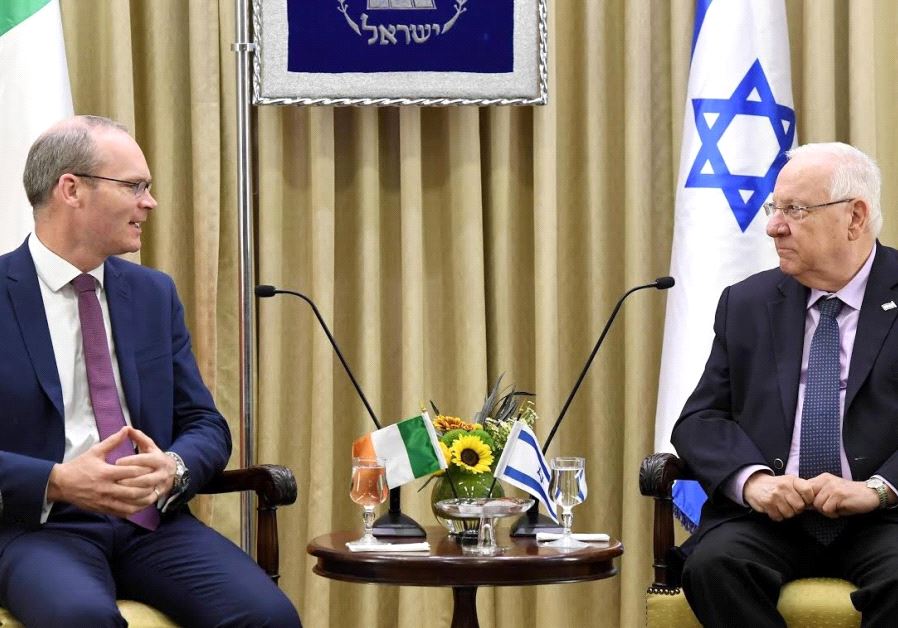'Ireland is friend to both Israel and the Palestinians'
Simon Coveney: Because Israel is a democracy, we apply standards that we don’t ask of Arab states.
 President Rivlin meets with Irish Foreign Minister Simon Coveney(photo credit: MARC NEYMAN/GPO)Updated:
President Rivlin meets with Irish Foreign Minister Simon Coveney(photo credit: MARC NEYMAN/GPO)Updated: